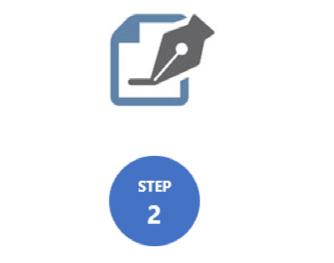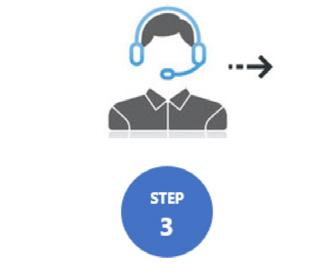
11 minute read
Guidance pillar 4: Awareness, transparency, and disclosure
CEMC policies have a vital role to play in addressing the information imbalance between FSPs and their customers. This can be achieved partly by healthy competition between FSPs, assuming the market is disciplined and provides sufficient information to customers to help them make choices.
Advertisement
Limitations on the market’s scope to meet customers’ information needs leave a gap to be filled by consumer protection policies, including setting standards for FSPs in terms of transparency and disclosure, and initiatives aimed at promoting financial education, capability, and confidence.
Consumers’ awareness and understanding of how to file a complaint about a financial product or service are essential. However, raising awareness remains difficult in developing countries where many vulnerable consumers, including women, do not have access to information provided through regular channels.15
Rapid changes in the (digital) financial services sector have brought many new, predominantly vulnerable, first-time consumers into the market. Hence, disclosure and transparency requirements “help to protect these vulnerable consumers. Disclosure and transparency principle requires financial institutions to act fairly and reasonably in all dealings with consumers, including a prohibition on unfair and deceptive practices.”16 The successful implementation of a transparency and disclosure regime depends mainly on understanding customer needs, consultation and engagement with stakeholders, supervision, monitoring and enforcement, and financial capability.
AFI REFERENCE PUBLICATION
DFL Guideline Note:
Complaint handling for DFS clients with a focus on increasing clients’ DFL and facilitating data collection to inform interventions.
National Financial Education Strategies
Toolkit: Importance of financial education and its role complementing financial inclusion and consumer protection policies.
> View here
> View here
15 AFI. 2013. Guideline Note No. 9: Consumer Empowerment and Market
Conduct – Help and Redress for Financial Consumers. 16 AFI. 2020. Experiences in the Implementation of the Principle of
Disclosure and Transparency in AFI Member Countries.
COUNTRY EXAMPLE – ARMENIA
The Central Bank of Armenia, Regulation 8/04, Annex on “Minimum Conditions and Principles for Internal Rules, Regulating the Procedure of Examination of Complaints of Customers” directs to always post “How to act, in case you have a complaint” on the website of the financial organization, the place of operation, and as a leaflet.
Logo of the organization
Important notification
HOW TO ACT, IN CASE YOU HAVE A COMPLAINT
Every employee of the organisation must: the responsible emploee must:
PLEASE BE INFORMED ABOUT YOUR RIGHTS
guide you towards the employee responsible for complaints, Provide nessesary information for communication (telephone number, electronic address). Inform you about your rights and procedure of investigation of compliant, Provide the applicable rules in the organization and Application form.
PLEASE APPLY
15 days later
PLEASE CONSIDER YOUR RESPONSE
If you are not satisfied
PLEASE APPLY
Name of organization Please submit the written complaint to the responsible employee or send to the addresses as follows: Please indicate Your data in order to receive an answer, Please take the receipt and hold it before the final resolution of the issue.
The organization shall make a decision on complaint (to satisfy the complaint, to partially satisfy, to refuse) within 15 working days.
TO THE FINANCIAL SYSTEM
MEDIATOR, in case
You are a natural person,
The complaint refers to the provided services and you have a monetary complaint (up to 10 mln. AMD) or the complaint refers to the information in the credit register,
Within 15 working days you did not receive any reply or the reply is not satisfying,
The compliant is not under the court ruling or in the arbitrage tribunal, 6 months are not passed from the response,
The deed or misdeed under complaint has taken place after August 2, 2008.
THE SERVICES ARE FREE
(Yerevan, 0010, M. Khorenatsi street 15, Elit Plaza business centre, 7th floor, (+37460)701111, info@fsm.am)
THE CENTRAL BANK OF ARMENIA
You can apply to the Central Bank, and your complaint will be answered within 15 working days
(Yerevan, 0010, V. Sargsyan 6 street, (+37410) 592697 consumerinfo@cba.am) In case your compliant is under authority of other institutions, then the Central Bank will forward your questions to them. The Central Bank advises you to firstly apply to the financial organization with your issue (step 2). In case you have questions, please refer to the responsible employee.
ARBITRAGE TRIBUNAL
If You and the organization have concluded an arbitrage agreement, then the conflict between you are subject to resolution by the arbitrage tribunal. When concluding the contract you have right to refuse the arbitrage agreement and the organization must provide you the services. Please remember that even in case of arbitrage agreement you can apply to the Financial System mediator untill the compliant is not under tribunal’s ruling. The Mediator is not authorized to accept the complaint in case that complaint is already under tribunal's investigation.
COURT
You can always apply to the court. The court decision is not subject to be revised by the Financial System Mediator.
In case you have questions, please apply
(Name of the organisation, address, telephone number and electronic mail address)
COUNTRY EXAMPLE – MALAYSIA
BNMLINK assists the public and businesses with information, inquiries, and complaints relating to financial products and services under its purview.
● Lodge your complaint to the FSP
Complaint Unit
● Refer to the list of FSPs’ Complaints Unit
here
How to lodge complaints?
Three steps to follow when making a complaint:

● Obtain response and final decision on
your complaint from FSP
Tips
● Contact the FSP as soon as possible to give them a chance to rectify your issue ● Record a complaint reference number and the date you lodged your complaint ● In most cases, the FSP will publish its complaints process online or advise you on how to make a complaint in their decision notification ● The FSP may ask you for more information to help assess your complaint
Tips
● If you have not received a response within the timeframe provided by the FSP, you should contact the FSP to follow up ● Try to follow up in writing if you can, so that there is a proper record trail ● FSP must inform you if further extension is required for resolution of your complaint
Source: Bank Negara Malaysia. Scope of Complaints Handled by BNMLINK. ● If no response received after 14 days, you may refer your case to BNMLINK through
eLINK at bnm.gov.my/LINK

OR
● If you are dissatisfied with the FSP’s decision, you may refer to the relevant redress channels to address your complaints
Tips
● If you are still not satisfied with the resolution received from the relevant redress channels, you may seek legal advice on this matter
AFI REFERENCE PUBLICATIONS
Experiences in implementing the Principle of Disclosure and Transparency in AFI Member Countries:
Challenges and recommendations for implementing the disclosure and transparency.
DIGITALLY DELIVERED CREDIT
POLICY GUIDANCE NOTE AND RESULTS FROM REGULATORS SURVEY
CONSUMER EMPOWERMENT AND MARKET
CONDUCT (CEMC) WORKING GROUP - RESPONSIBLE LENDING SUB-GROUP
Guideline Note No. 17 September 2015
Guideline Note 17:
Digitally Delivered Credit: Regulatory considerations on digitally delivered credit, complaint and redress.
>View here Policy Model:
Consumer Awareness, Complaints and Redress for DFS.
>View here Survey Report:
Consumer Awareness, Complaints and Redress for DFS.
>View here Guideline Note on Data Privacy for Digital Financial
Services: Data privacy risks, awareness of complaints processing systems and ADR scheme.
>View here Digital Financial Services Regulation: Current State of Practice Report:
Regulatory considerations on price disclosure and complaint handling.
>View here
RECOMMENDATIONS
AWARENESS AND ACCESSIBILITY
> Financial literacy and awareness programs > Help and redress mechanisms’ accessibility > FSPs to inform consumers of complaint handling mechanisms > Appropriate complaint handling channels > Free and accessible procedures > Digital channels
PRODUCT SUITABILITY, TRANSPARENCY, AND DISCLOSURE
> Sound transparency and disclosure practices > Sound product development and customer-centric approach > Demand- and supply-side data collection > Target population consultation
FAIR TREATMENT AND RESPONSIBLE BUSINESS CONDUCT
> Interventions defined for specific target groups > Responsible marketing, advertisement, and sales > Indicators for unsuitable products > Help and redress for over-indebted consumers
AWARENESS AND ACCESSIBILITY
Implement financial literacy and awareness programs specifically focused on consumer rights and responsibilities
Awareness programs should be tailored to help consumers identify and adapt to emerging DFS-related risks and trends. FSPs must also identify potential gender barriers that might interfere with filing a complaint. Programs should include creating awareness of redress mechanisms among women and take into account their lower literacy levels.
Help and redress mechanisms should be easily accessible and user-friendly
Consumers should have easy access and a clear understanding of filing and investigating complaints. Consumers should be able to deal with the complaints system in the language in which they conduct their everyday business, not just in the official national language that is understood by the consumer.
Regulators should require FSPs to inform consumers verbally and in writing about their internal and external complaint handling mechanisms
Regulators should require that this information is included in documents such as notices displayed in branch offices, price quotes for products and services, customer contracts, and monthly account statements. This requirement will also depend on the institution hosting the help and redress mechanism (if the Central Bank, it will be easier to display at the Central Bank level).
Consumers should be able to file complaints through all locally appropriate and commonly used channels
There should be one identified central point where consumers can complain about financial products and services, such as the internet (commonly used digital channels through social media platforms), email, telephone17, post, or in-person visits to the FSP’s internal dispute or complaints office.
Complaint procedure should be free of charge and accessible 24/7
This is to ensure all financial consumers, including vulnerable segment, can have access to support.
Implement digital channels to access help and redress mechanisms more efficiently
The news media (television, radio, national/local newspapers) can play an important role in awareness raising. FSPs should pursue collaborative efforts with
local and national media outlets. FSPs should facilitate the suitability of (digital) communication through customer-centric features, appropriate language, and relevant tools (digital financial calculators, TV, media, SMS). Some CEMCWG members emphasized that the drive for digital channels is for efficiency. If investing in digital channels does not result in greater efficiency, these should not be prioritized.
PRODUCT SUITABILITY, TRANSPARENCY, AND DISCLOSURE
FSPs should develop and implement sound transparency and disclosure practices
Effective and consumer-focused transparency and disclosure regulations need to be implemented at all stages of the consumer’s process of choosing and using a financial product, including pre-agreement quotes and disclosure in advertisements and brochures, standards for contractual disclosure, and standards for postcontractual disclosure.
Redress provisions should be incorporated into product development, with a customer-centric approach
FSPs should incorporate appropriate and gendersensitive resources and ensure sufficient help and redress capacity in their organization for effective implementation and meeting consumer needs. Consumer-centric policies and strategies can be aligned with staff’s performance indicators. Staff capacity building and training must continue.
Demand- and supply-side data should be collected to identify specific vulnerabilities, risks, and appropriate help and redress mechanisms for specific target groups
Disaggregation of data based on identified demographics, needs, and possible risk mitigation for the target groups will ensure a more effective and targeted help and redress mechanism approach for FSPs, especially vulnerable groups. Demand- and supply-side data collection should also reflect accurate and updated complaint records, collect data relevant to specific and identified complaints, and always ensure the records are secure and confidential.
Consult representatives of the target populations during the development and implementation of help and redress activities
This will ensure that the policies and strategies designed for FSPs’ help and redress mechanism will effectively identify the risks, possibly mitigate, and appropriately address the complaints as and when they arise. Women and women-owned MSMEs should be considered as part of the population representatives.
FAIR TREATMENT AND RESPONSIBLE BUSINESS CONDUCT
Help and redress interventions should be welldefined for specific target groups, though identified efficient delivery channels
Demand- and supply-side data should be collected to identify particular vulnerabilities, risks, and appropriate help and redress mechanisms for specific target groups. Representatives of the target populations must be included in consultations to develop and implement help and redress activities.
Authorities should provide principle-based guidance as appropriate for responsible marketing/ advertisement/sales
Principle-based guidance should give prominence to key features of a product/service, such as its price, risks, return policy, amounts due, and access conditions and restrictions, which are easily readable and understandable and would allow consumers to make an informed decision.
Develop indicators for unsuitable product features and benchmarks for financial products that can be used safely by a wide variety of consumers to help consumers make informed decisions
In the absence of indicators for unsuitable product features, mechanisms should be put in place including laws with provision of regulation, supervision, and penalization, and regulations. In the long run, FSPs must be encouraged to develop indicators, or at least appropriate benchmarks, for unsuitable product features.
Make available specific avenues of help and redress to help over-indebted consumers address their financial difficulties and regain control
The relevant mechanisms and processes should provide consumers with key information (debt counseling, personal finance management, etc.) that would allow them to make informed decisions about their financial difficulties and choose the appropriate avenue for complaining.


